Dudmaston Hall is a mansion in Shropshire, England dating from the 17th century. Although it is maintained by the National Trust, the hall is still a family home. The relatives of the family that owned the house still live at the estate, and the estate is only open to visitors on specific dates and times. It is also known for its collection of modern art and sculptures by Henry Moore and Barbara Hepworth as well as Spanish paintings. I visited Dudmaston Hall and estate at the end of August. Visitors to the estate can explore some of the open rooms of the house, walk in the landscaped gardens and parkland, and visit the shop or cafes.
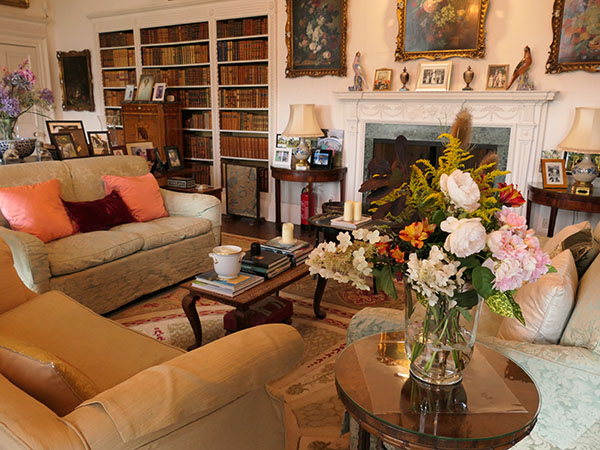
The estate belonged to the Wolryche family since 1403, and the medieval house was replaced by this 16th century hall, which was modelled aftr Belton House (another National Trust property in Lincolnshire). The hall was lived in by William Whitmore politician and Charles Babbage computing pioneer.
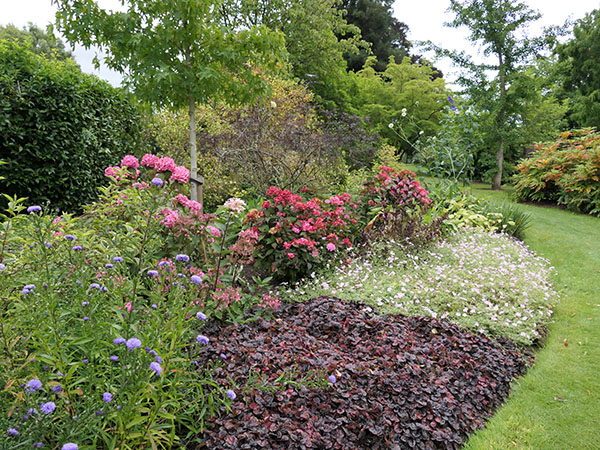
Before entering the house, which is set at timed entries, I visited the parkland and gardens.
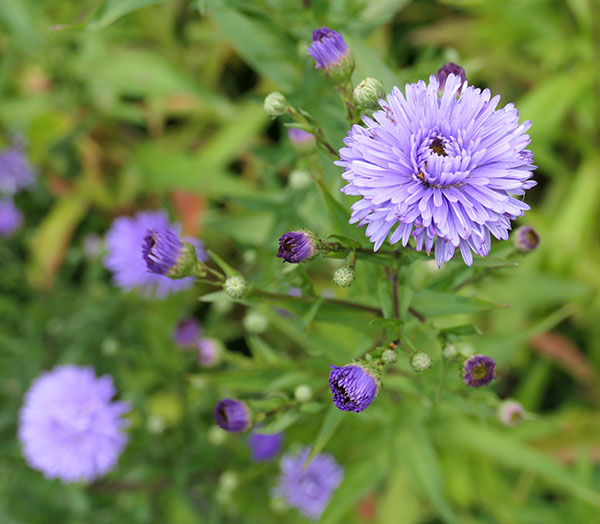
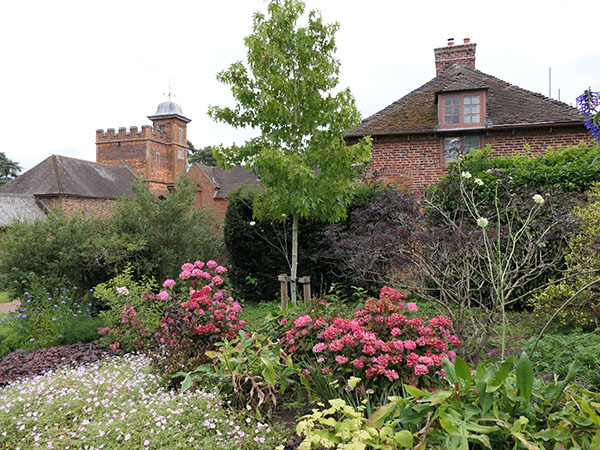
There are some sculptures by Anthony Twentyman in the garden, and one of these is "The Blade".
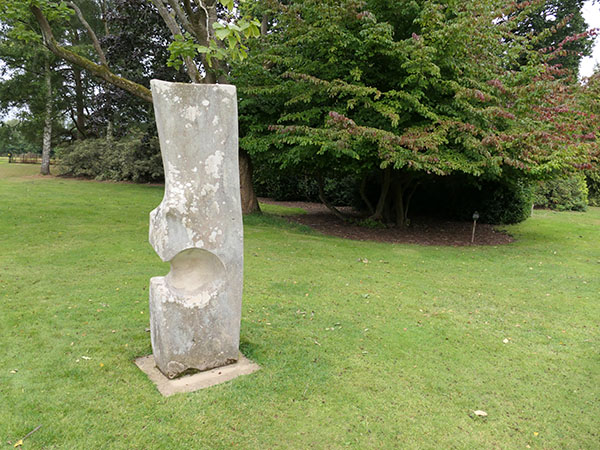
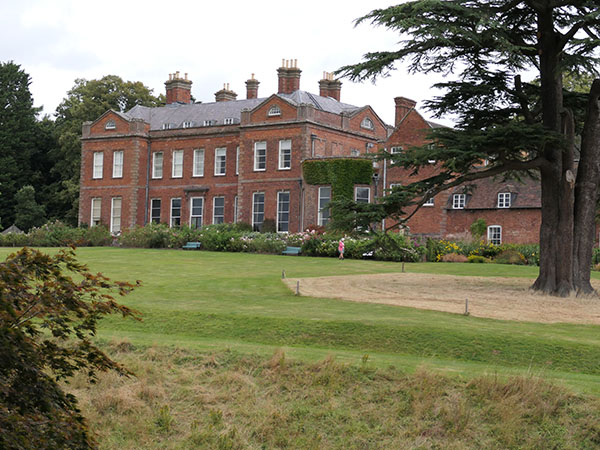
The landscape dips into a lake at the bottom of the house.
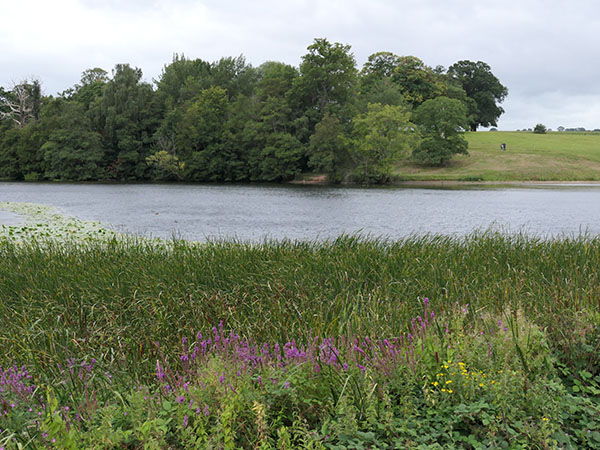
Another sculpture by Anthony Twentyman in the grounds looks over the lake, and it is called "The Watcher", which fits into the surroundings.
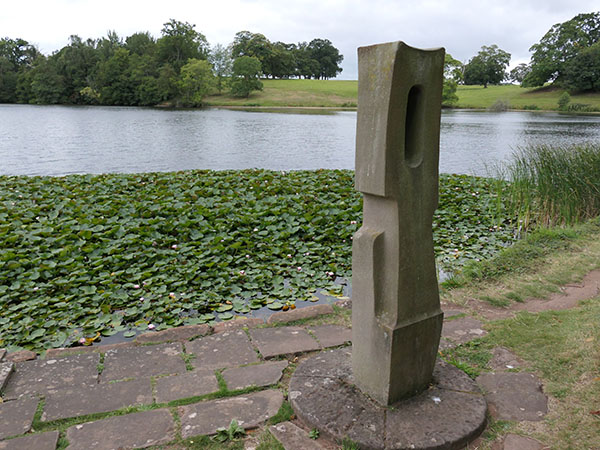
Another sculpture by the artist is called "Spaceframe" and took three months to construct.
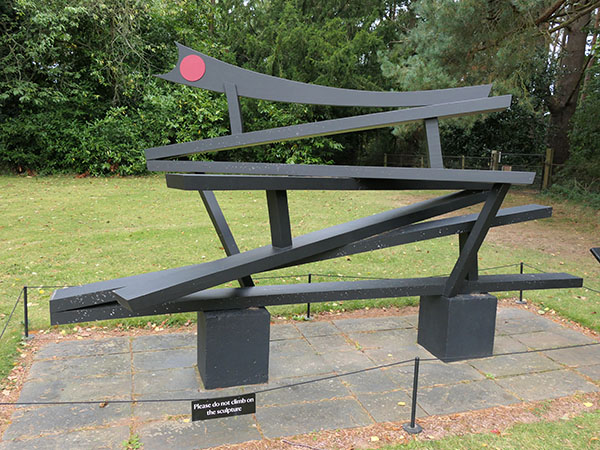
I continued to explore the grounds of the house.
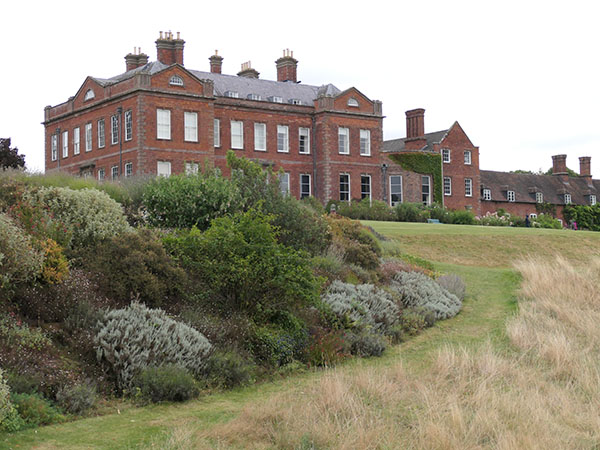
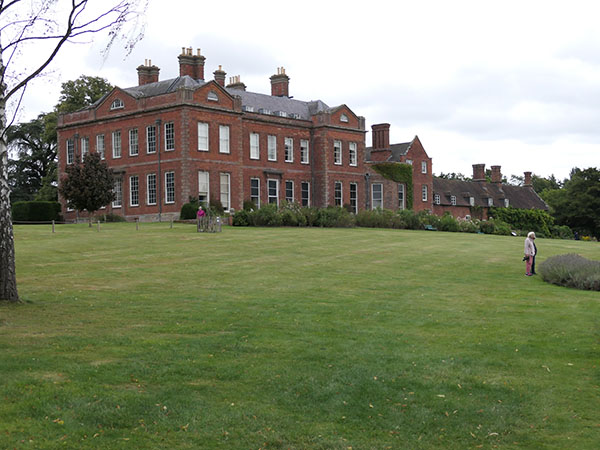
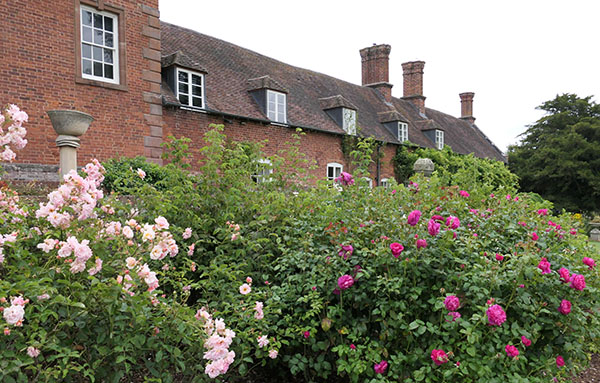
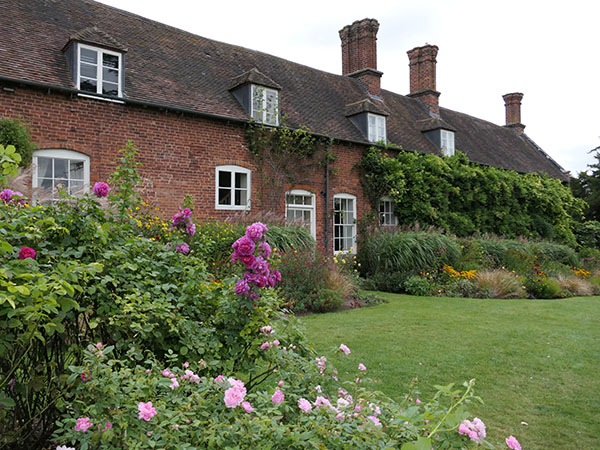
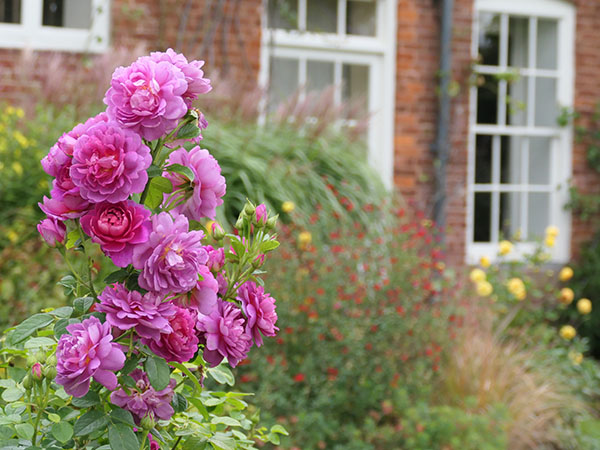
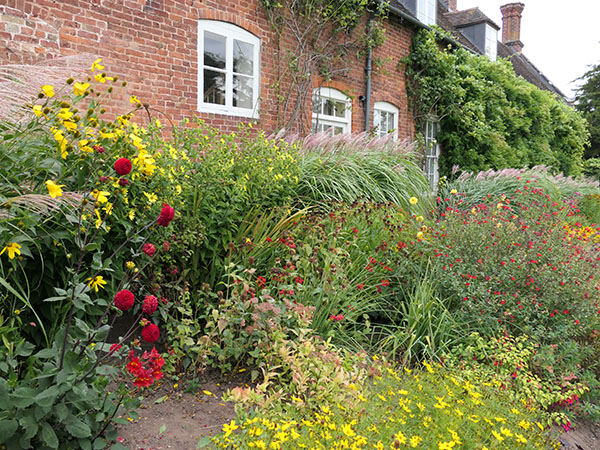
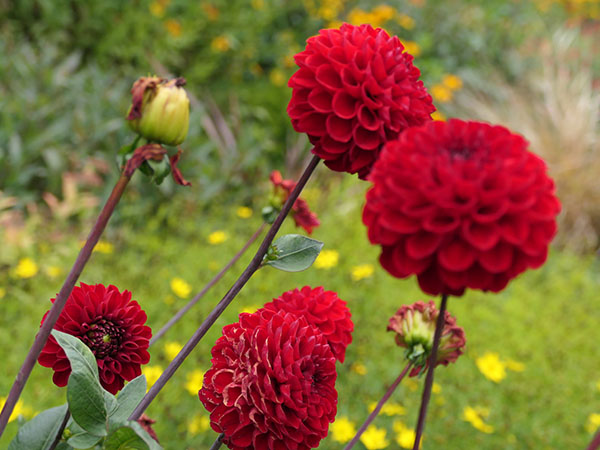
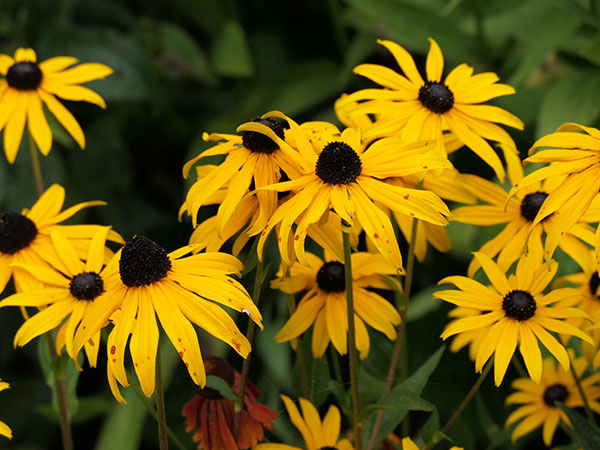
Once my time to visit the house had come, I went inside. The house is lived in by the Hamilton-Russell family, so there are their personal items and photographs displayed around the home.
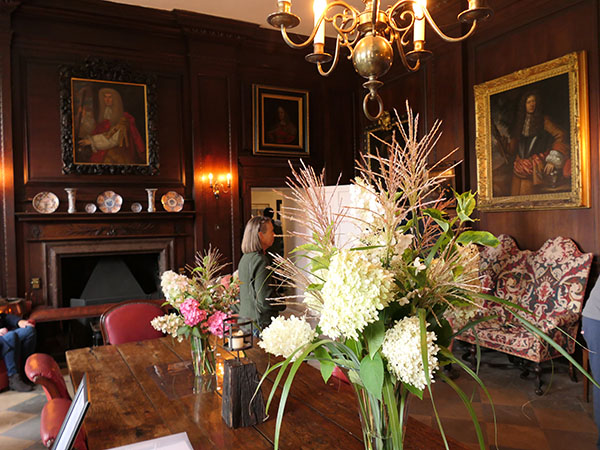
The entrance hall contains a long table which was once in the servant's hall, and there are rooms off of the hall to a small office and to a hallway with other rooms. There were several paintings to see in the entrance hall.
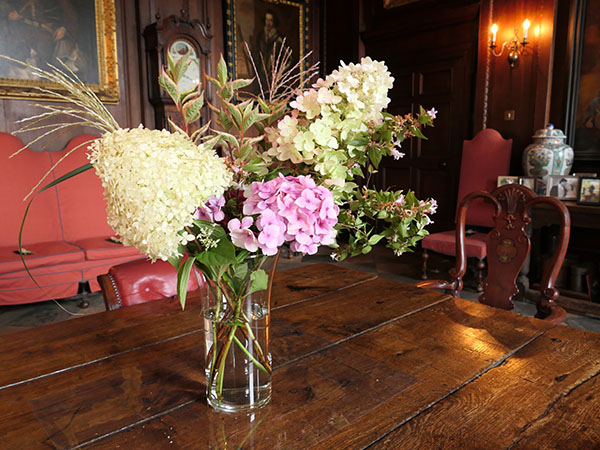
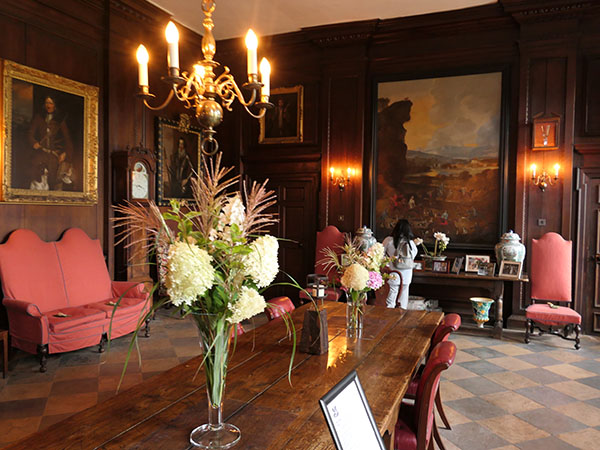
Below is the small office or study room off the entrance hall.
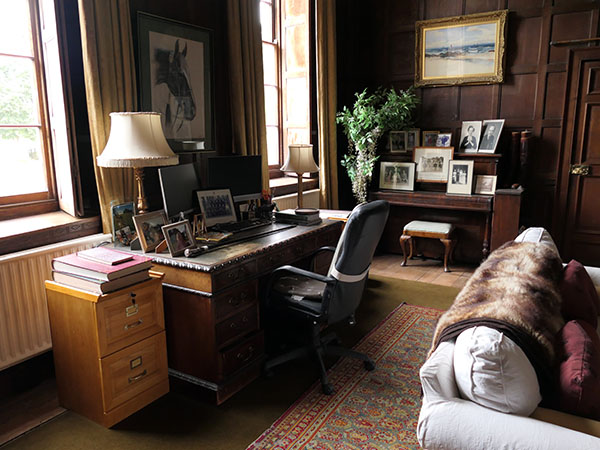
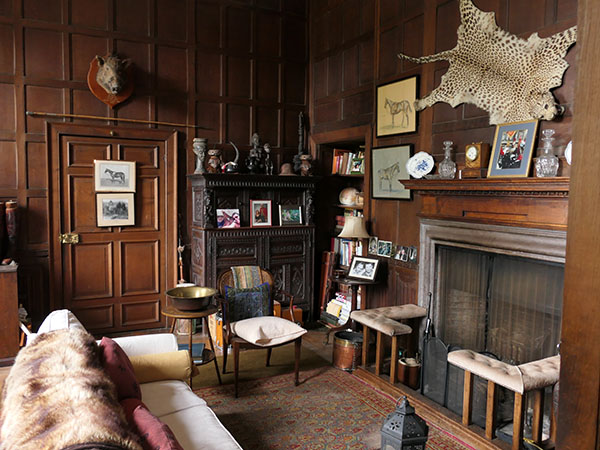
In the hallway off of the entrance hall are the stairs up as well as an area with a Blue John Stone vase and family photographs.
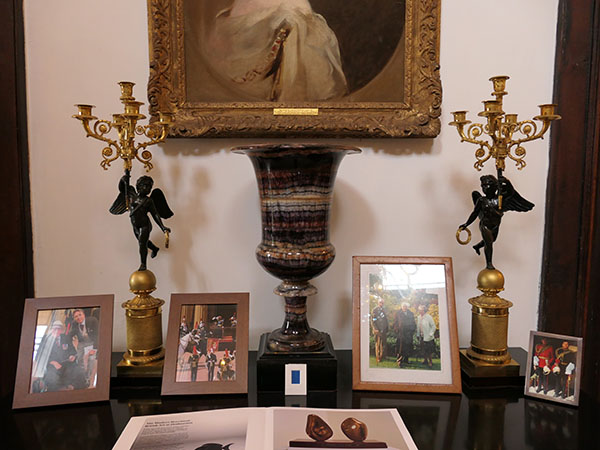
The below room is the library, which was created from splitting two rooms.
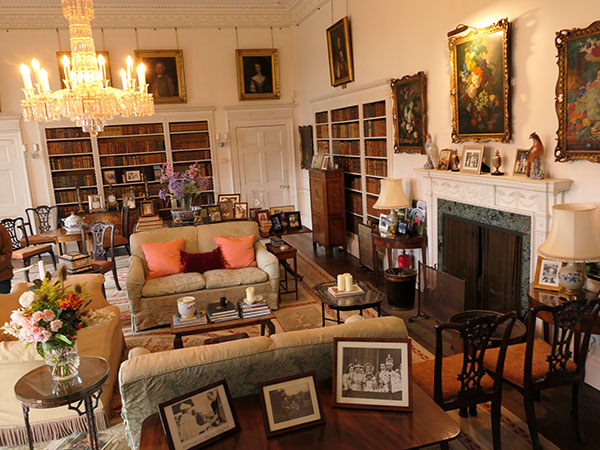
There are views out over the lake and grounds.
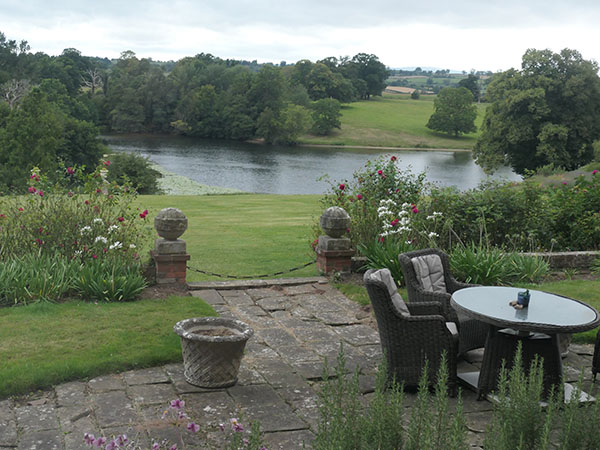
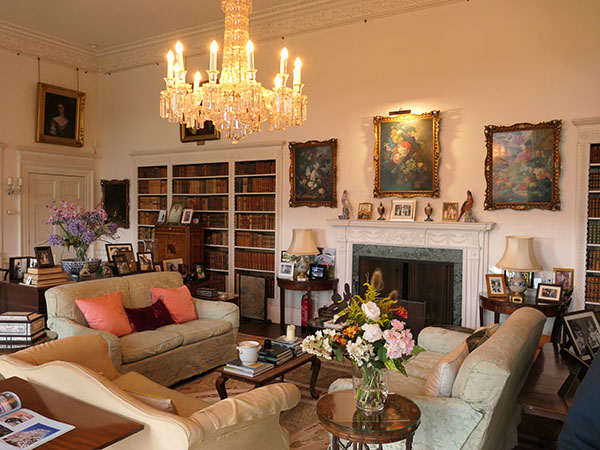
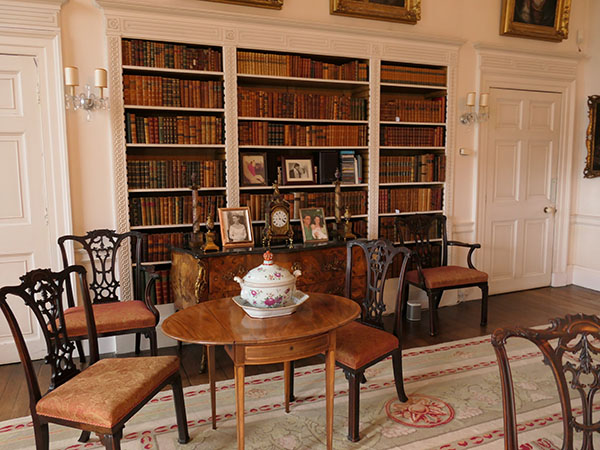
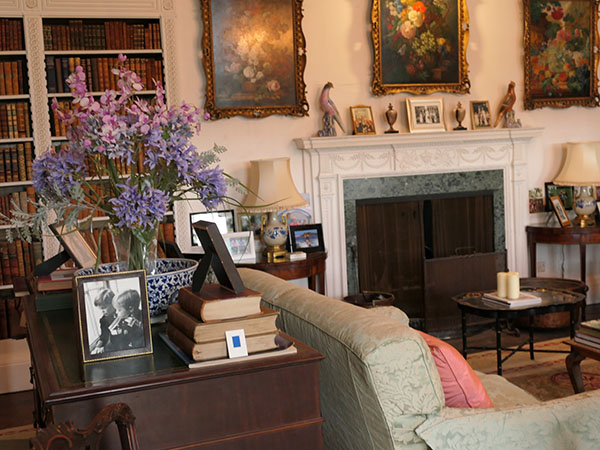
The Oak Room is decorated as the rest of the hall would have originally been decorated with wood panels, and it contains old family photographs and paintings.
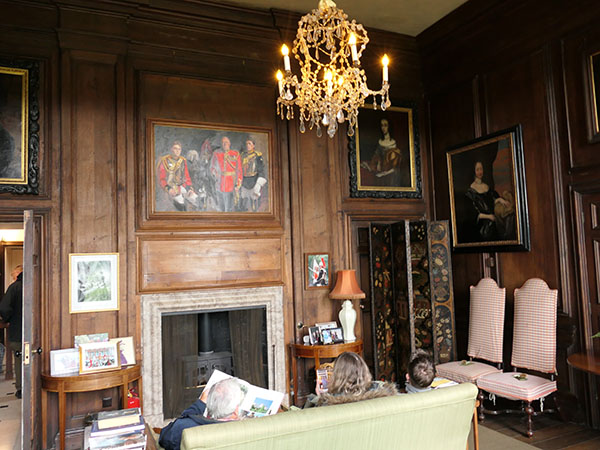
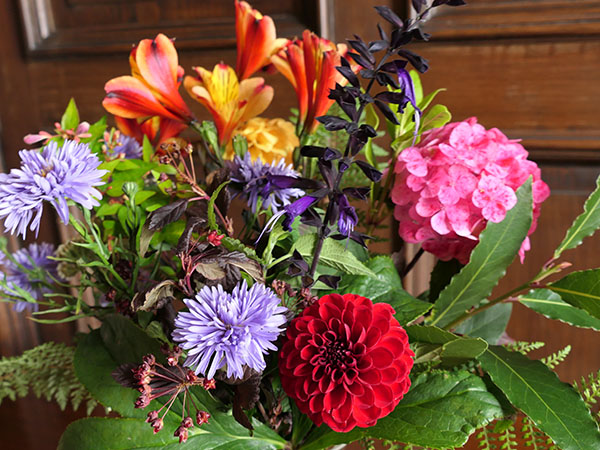
Upstairs are some bedrooms and bathrooms open to visitors.
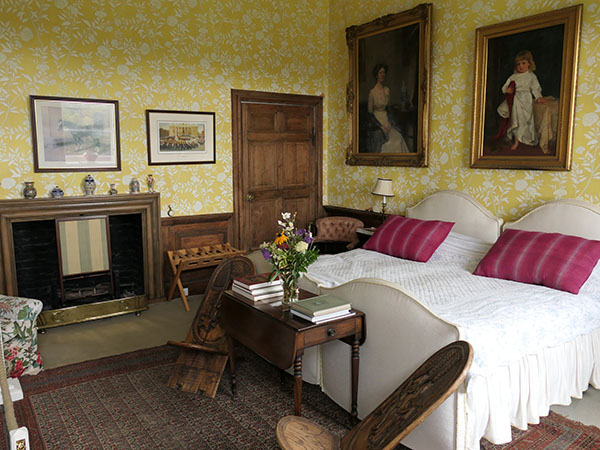
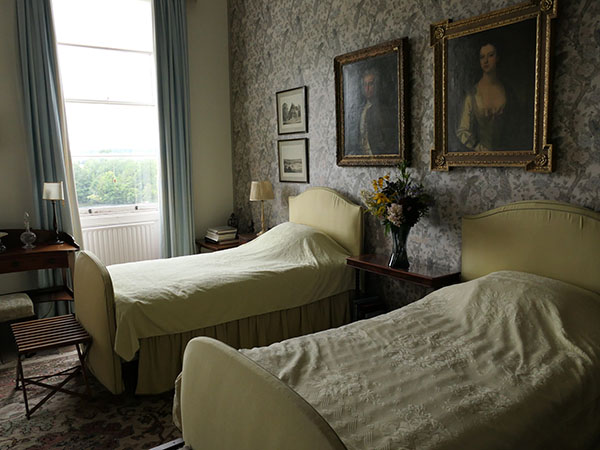
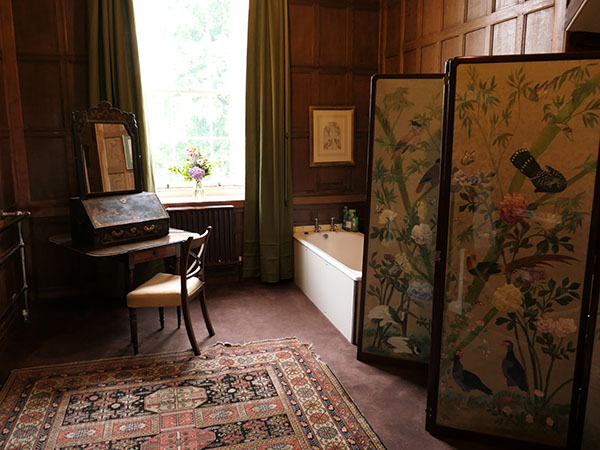
The hall contains a small museum dedicated to the fans and the art of fans. These fans were used by women to "talk" to men and other women through a series of motions. The fans are all different with some more ellaborate than others and were made to match the outfit.
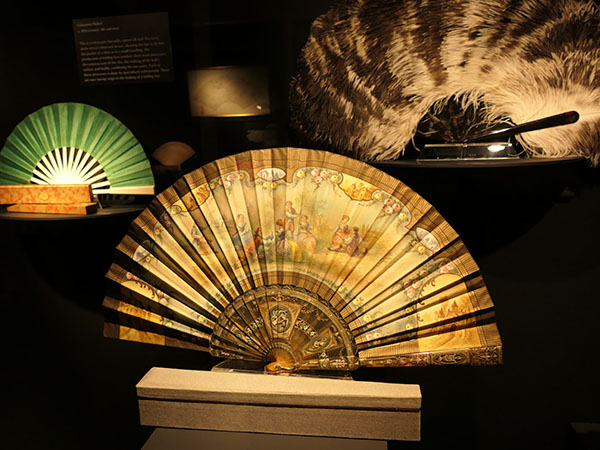
There was another room containing vintage items and then the rooms dedicated to art, such as the Spanish paintings.
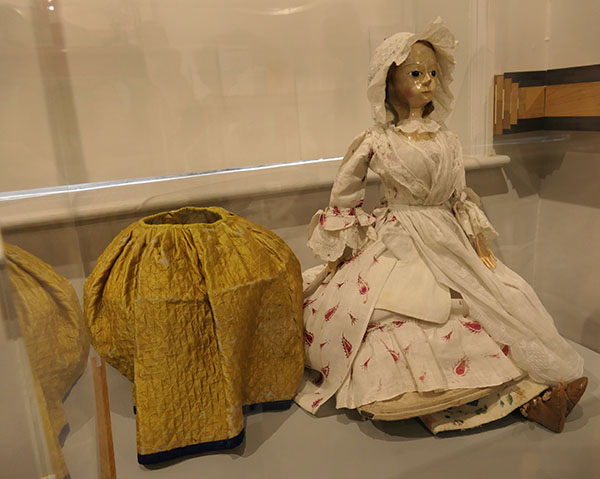
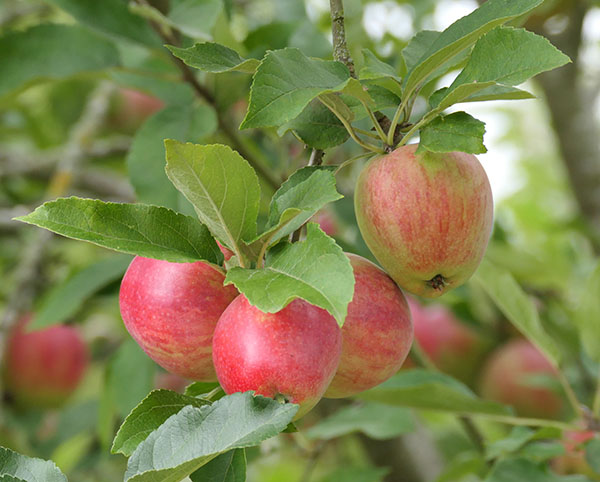
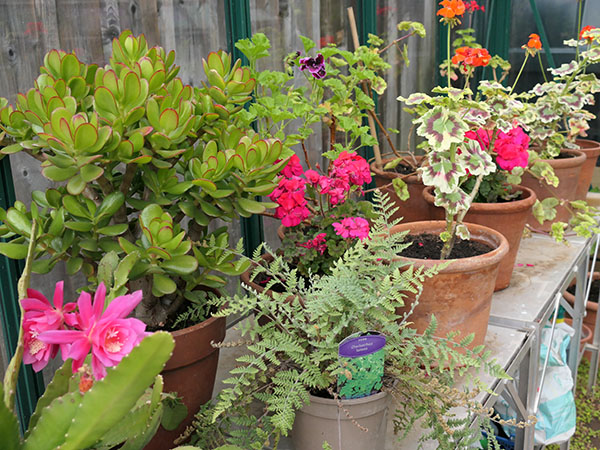
Dudmaston Hall was quite busy during my visit, and this was my first visit to the National Trust property.
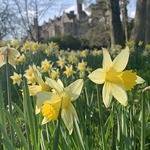
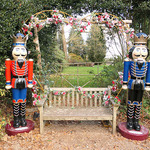
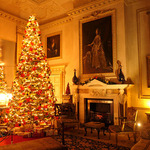
Leave a comment